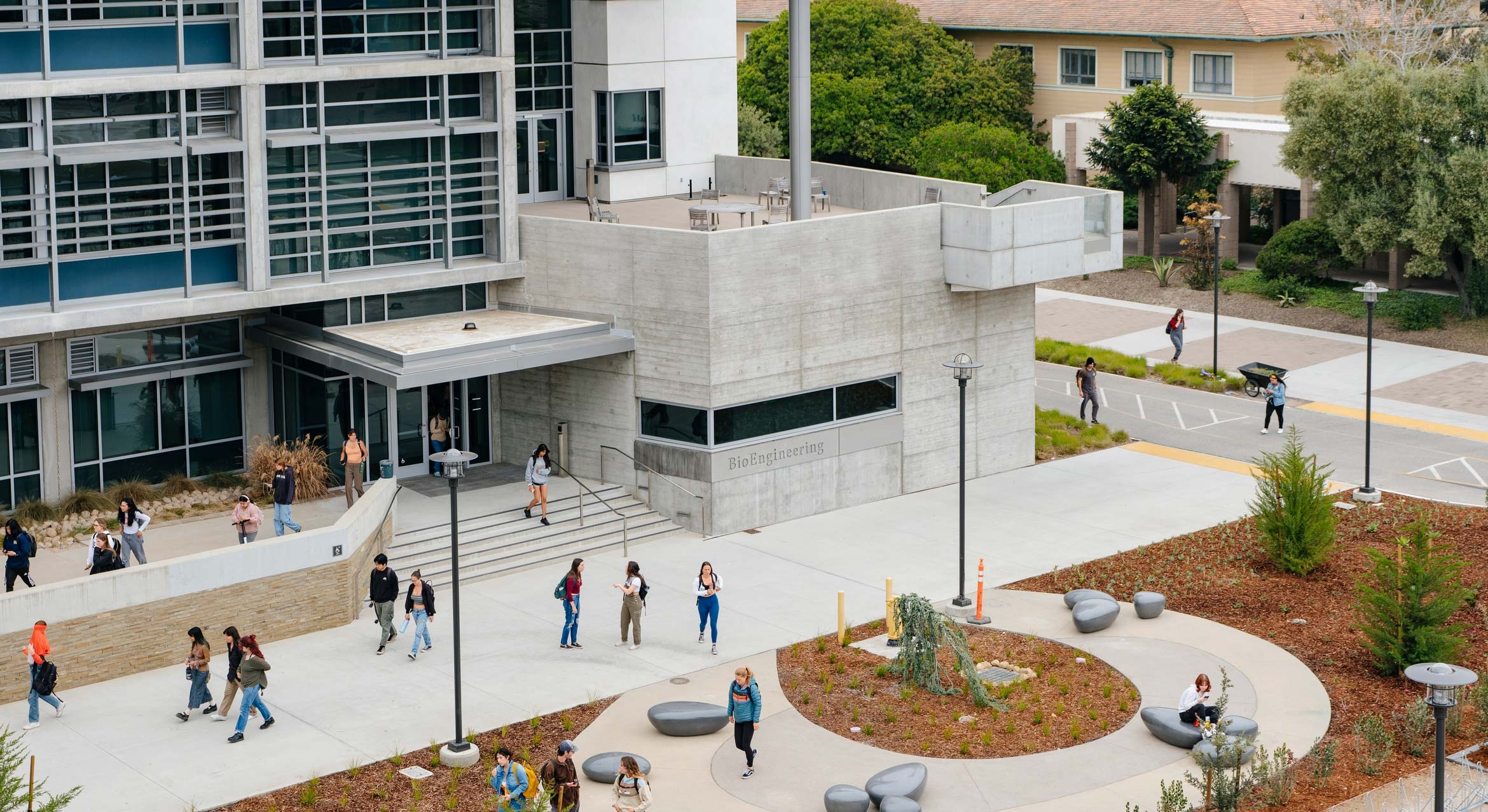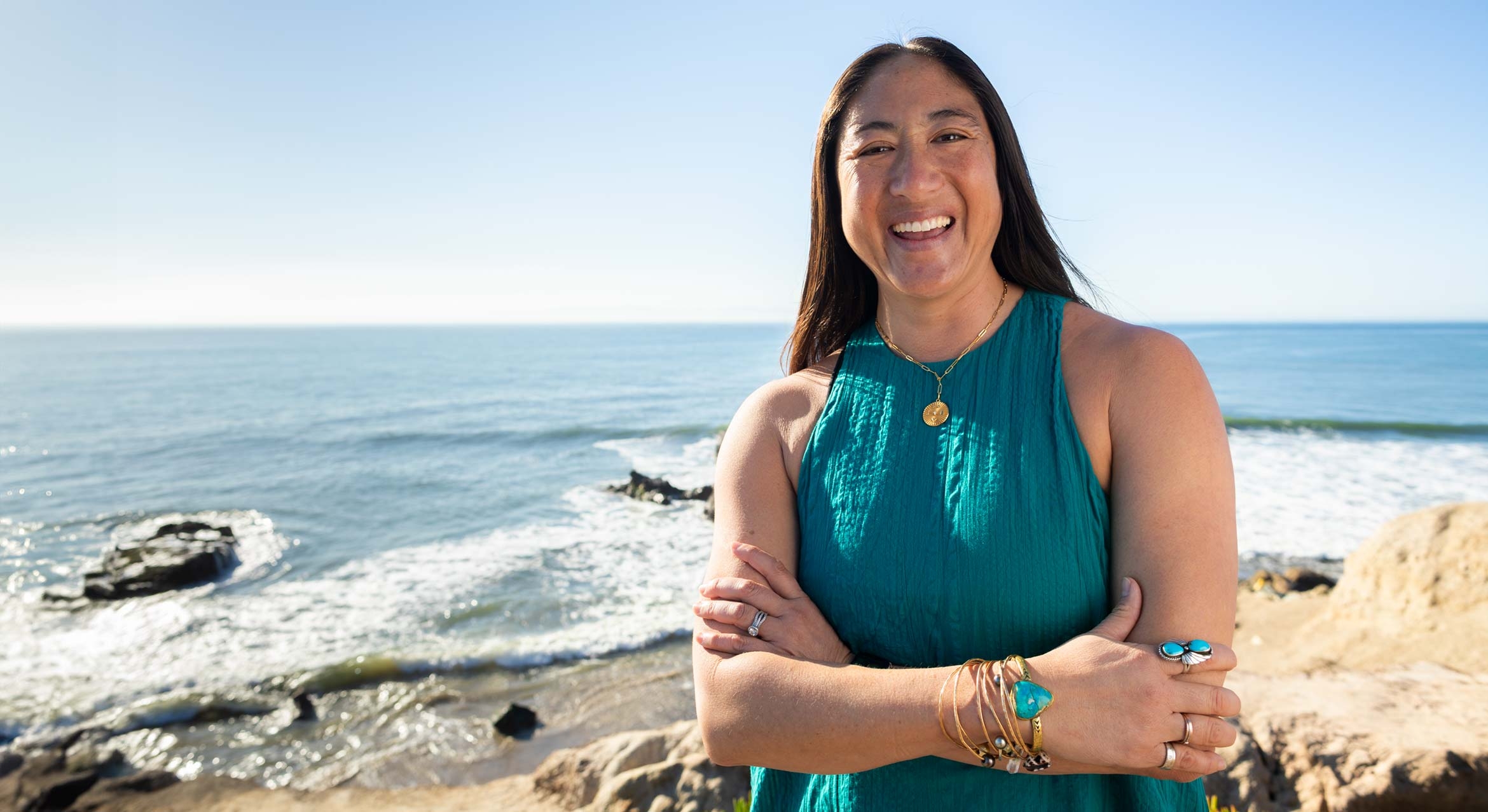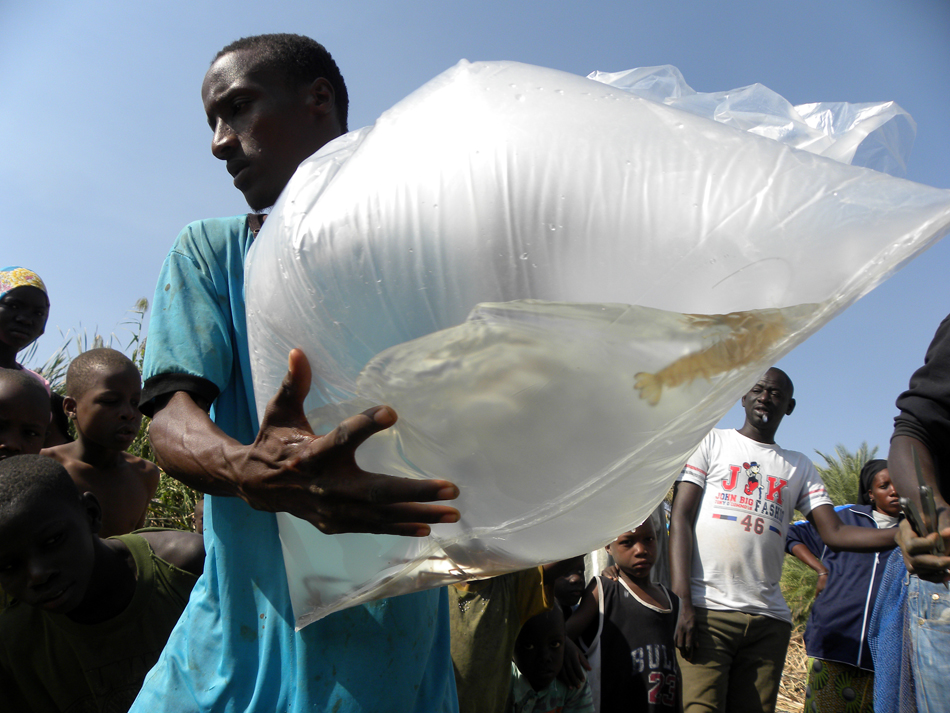
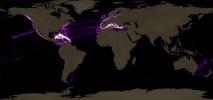
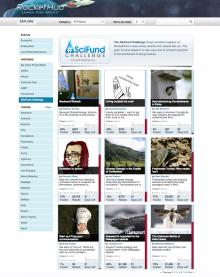
Taking advantage of the combination of social networking and venture capitalism that is "crowdfunding," several UC Santa Barbara scientists are participating in the #SciFund Challenge, an online effort to connect the public with their science, and also to fund their projects through small-amount donations.
The campaign, which started May 1 and will last through the month, is the brainchild of Jarrett Byrnes and Jai Ranganathan, both researchers at UC Santa Barbara's National Center for Ecological Analysis and Synthesis (NCEAS).
"Our primary goal is to have scientists have outreach and engagement in their daily lives," said Byrnes. The participating scientists submit proposals, a summary of their work, and videos to a site administered by the crowdfunding platform RocketHub. Their proposals are critiqued by the community of participating scientists, and advice is tossed around in forums as to how best to appeal to a broad audience.
"The most successful participants are the ones who know how to translate their work well, and do good work getting the word out," said Rangathanan, who spent weeks training #SciFund Challenge scientists in the art of effective modern communications.
Projects that can come across as interesting and meaningful tend to get more attention and funding. The priority on approachability has led to some creative and humorous videos.
Currently, the #SciFund Challenge has 75 scientists from three continents raising funds for their projects, which cover various topics –– from how your genes might influence your vote, to how raising prawns might keep children from contracting a parasite. Those with an interest, curiosity, and generosity can pledge directly to their favorite scientific endeavor in an effort to reach a preset funding goal determined by the project's scientist. If a project meets its funding goal, the scientist gets the money, minus any fees and, roughly, an 8 percent cut to RocketHub. If the project doesn't meet the goal, it's not the end: The scientist still gets the money, but minus fees and a 12 percent cut to RocketHub.
In exchange, project scientists provide regular updates to donors. They also decide what rewards donors get, based on levels of contribution. The first campaign took place late last year, with 49 scientists participating, and raised over $76,000 in about six weeks. The current challenge has 75 scientists, and has already raised over $50,000 by its second week. Some projects have already received full funding, including one on data management by NCEAS researchers Stephanie Hampton, Carly Strasser, and Stacy Hespanha, and one that would supply water filters to people of the Kasungu District in Malawi, East Africa, by Ning Jiang, a second-year Ph.D. student at UCSB's Bren School of Environmental Science & Management.
"I thought (#SciFund Challenge) was really well-suited and I was hoping to fill some funding gaps," said Susanne Sokolow, a marine biologist at UCSB's Marine Science Institute, whose project, Projet Crevette, is intended to eliminate schistosomiasis, a debilitating condition caused by parasitic worms carried by snails in Senegal, West Africa. By farming prawns, which eat the snails, the project might help the people affected and eventually provide a sustainable and profitable food source.
Both the scientists and their donors are part of a larger study, as Byrnes and Ranganathan compile data provided by RocketHub to find out what works in the long run.
Currently, #SciFund Challenge has proved suitable for smaller projects and newer researchers, although at least one project in the last round raised over $10,000. But it doesn't rule out bigger projects in the future, said Byrnes, pointing to Cancer Research UK, a crowdsourced fund that draws massive donations every year.
Crowdsourcing won't replace the more traditional and bigger funding sources, like the National Science Foundation, said Byrnes. In some cases, a project would not be suitable for crowdsource-type funding. In other cases, crowdfunding can serve as an incubator for new research and innovations, the results of which may go on to fuel grant proposals to foundations. Additionally, these projects would also come with a healthy outreach component.
Other UCSB #SciFund Challenge participants include: Ana Elisa Garcia, Emily Wilson, and Shaun Walbridge, from the Department of Ecology, Evolution and Marine Biology; Tal Ben-Horin from the Bren School of Environmental Science & Management; and UCSB alum Claudia Makayev.
As for the donors, #SciFund Challenge's creators hope they come away confident in their individual support of scientific research.
"I really hope that donors walk away engaged with both a scientific research project, and an individual scientist. I want them to become interested in and invested in what the scientists they fund are doing," said Byrnes.
† Top image: One #SciFund Challenge project involves farming prawns in an effort to curtail the snails that carry a debilitating parasite.
Credit: Susanne Sokolow
†† Middle image: #SciFund Challenge project Roads of the Ocean studies the traffic of global shipping routes.
Credit: Shaun Walbridge, Carrie Kappel & NOAA Sound Mapping Group.
††† Bottom image: Using #Scifund Challenge, scientists can explain their projects to the interested public. The more approachable the topic, the higher the likelihood of support.
Related Links
